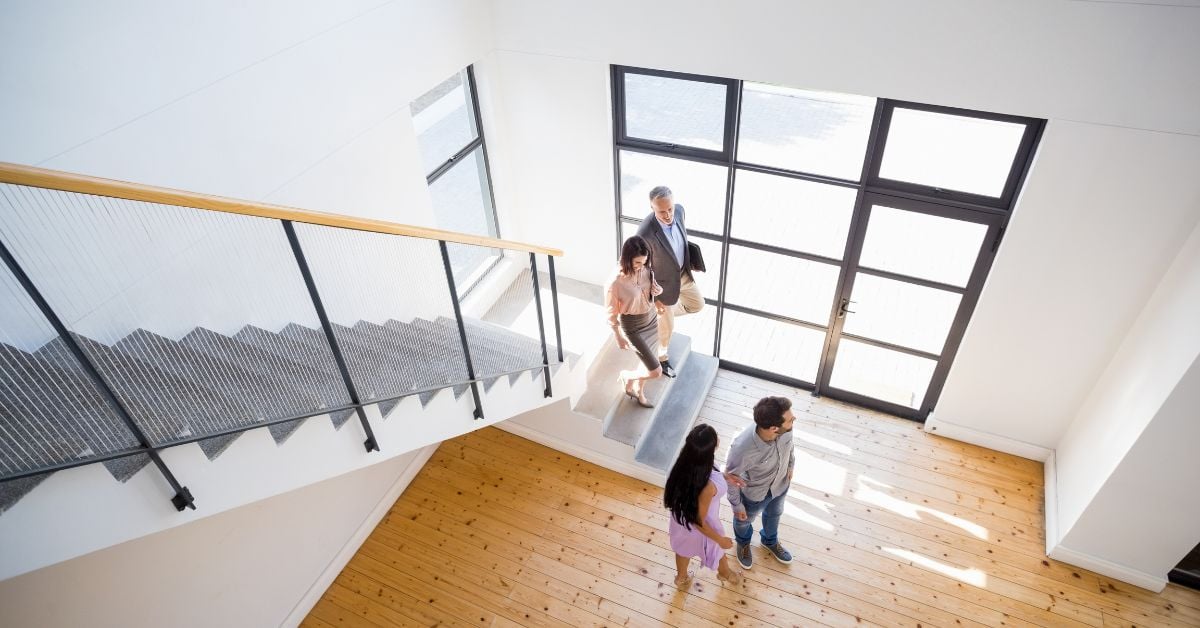Steps to Buying Real Estate

Buying a home in many parts of Australia can be a competitive process. Many buyers are often competing for the same property, not to mention the rise of property buyers who are experts at buying homes. Understanding the process is vital and may mean the difference between being the successful owner of the property or missing out to someone else more experienced.
Here is a look at the steps involved in buying, the different ways to buy, where to search for a property and understanding contracts and the settlement process.
Different ways to buy a property in Australia
There are 4 primary ways you can buy real estate in Australia and depending on where you are looking to buy often determines the method.
Private treaty
A standard residential property transaction is known as a Private Treaty sale. This is when the vendor, or home owner sets the price they would like to sell their property for and their real estate agent negotiates individually with prospective buyers to achieve a sale as close to this price as possible.
Buying at auction
An auction is a public sale conducted by a licensed auctioneer and are governed by strict rules. There is a reserve price, which is essentially the minimum the home will sell for - if bids surpass the reserve and you are the highest bidder, you have to sign the contract right there and then.
Buying by tender
Buying NSW property by tender is a process wherein you submit a single offer, usually accompanied by a 5 or 10 per cent deposit, and it is accepted or rejected by the vendor.
Buying off the plan
When you buy property off the plan, you are paying for something that hasn't been built yet. The home can end up slightly different from what you were told. However, it does offer you a lower price point than many other properties.
How to work out your budget
By working out a budget, you will able to track how much money you have coming in, where how it is being spent and where you may need to cut back to help save for a deposit or allocate towards your home loan repayments. Essentially, it should paint a pretty clear picture of what you can afford to buy.
When doing a budget, it is best worked out on a monthly basis by starting with your income after tax then any share dividends, term deposits or any other forms of income you may receive.
Next work out your monthly expenses, which should include things like food and entertainment, car expenses, health and well being, clothing and utilities, credit card repayments, personal loans, school fees, holidays etc. It is easier to calculate your monthly expenditure if you divide it into fixed and variable expenses. Fixed expenses are those that stay more or less the same every month. It comprises of your monthly debt repayments (such as, home loan payments and credit cards etc.) along with your other fixed day-to-day expenditure. Variable expenses are those that vary from one month to another. It includes your grocery bills, medical bills along with the money you spend in entertainment. This is an important category that requires careful monitoring so that you can prioritise and reduce your expenses if necessary.
Once tallied up in a spreadsheet, you should have a pretty clear picture of your spending habits and financial position. Make sure you are completely honest, it is risky to over stretch yourself when it comes to borrowing money, especially if you are not willing to cut out a few luxuries you may have become accustomed to.
If your income is looking healthy but you have a few credit cards that need paying off or a personal loan, it may be a good time to consolidate your debts, which can save you a fortune in interest. Speak to an LJ Hooker Home Loans Specialist, your bank, home loan broker or financial advisor about consolidating these debts with your home loan. Any existing debt you have is likely to reduce the amount of money you can borrow to buy your new home, however you will save money on interest repayments.
Typically, financial advisors and institutions will recommend that your home loan repayments do not exceed 30 percent of your before-tax income. Check out LJ Hooker’s borrowing calculator to get an idea as to how much you will be able to borrow. LJ Hooker’s How Much Can I Borrow calculator is another great way to see what your repayments will be depending on the amount borrowed.
Lifestyle factors to consider when doing a budget
A good budget is made to last throughout the years. It has to be flexible as your circumstances and spending changes over time so it is wise to review your budget periodically. Monitoring it every month and perhaps at the start of each new financial year is the best way to make alterations where necessary and ensure you stay on track.
On paper you might be entitled to borrow a certain amount of money, however it is important to consider the future and any changing circumstances which may affect your ability to service your home loan. Living in your dream home will not make you happy if you cannot afford to pay for it.
It is a good idea to plan for the unexpected by having a savings fund as part of your budget expenses. Ideally, this should be an automatic contribution you make each month. Make sure the funds are accumulating in a high interest bearing account.
It is important to think about what the years ahead may hold and how much they will impact on your financial position, which in turn may affect your ability to service your home loan. Retirement, job stability, career change or the hopes of starting a family are just some of the factors that can have a substantial impact on your financial position. Forward planning can lessen the impact the loss of income or extra expenses will have on your home loan commitments.
Where to look for a property
Research
It is important that you spend time researching the area you are looking at buying in. Here is a short list of resources that will help you:
- LJ Hooker Local Market report for a neighbourhood snapshot of the property market contact your Local LJ Hooker office
- Australian Property Monitors and CoreLogic RP Data are excellent online providers of property data and information.
- Websites like domain.com.au, realestate.com.au and agent sites like ljhooker.com.au will show you what is on the market.
From there, you can settle on what kind of property to buy - existing homes, off-the-plan units, apartments or houses, or perhaps something else altogether. The Department of Housing's A-Z of Buying is also a useful guide.
Where to Look for Properties
As for the actual property search, contacting your local LJ Hooker real estate agent is a great place to start. They know the local market intimately and would love to help you find your dream home.
As well as the sites like ljhooker.com.au, realestate.com.au and Domain.com.au, local and state newspapers can be very useful for finding more information.
Importance of inspections
Make sure you spend time thoroughly inspecting the property. It is also recommended to have a pre-purchase building / pest inspection on all properties you are serious about buying as it can save you thousands in the long run. To help you we have created inspection checklists you can download. Get our Apartment Inspection Checklist here and our Open House Inspection checklist here.
The buying process
Negotiating by Private Treaty
If you have found a property you love and want to make an offer. Make sure you have carefully considered how much you are willing to pay, how much you can afford, whether you go in with your highest price or prefer to go in low.
All offers and counter offers must be made in writing and signed by you. The agent is legally obliged to pass on all offers to the vendor as soon as possible. The seller then decides whether or not to accept or reject the offer. In many cases, the sale price is negotiated until both parties agree to a final price. If your offer is accepted you have a five day cooling off period during which you can withdraw from the sale.
Auction
Auctions are governed by strict guidelines and vary in each state in territory. In most cases to participate you must register with the vendor's agent and you will be given a bidders number. The auctioneer oversees the process and all bids from potential buyers are recorded. Before the auction commences the seller will normally nominate a reserve price and if the bidding continues beyond the reserve the property is sold at the fall of the hammer.
The seller is also permitted to make one bid called a vendor bid which the auctioneer will announce. If you are the highest bidder, you have to sign the contract of sale right there and then and pay your deposit (normally about 10 per cent). Also be aware, there is no cooling off period.
Pre-Contract
Before you buy a property it is very important that you review the contract in conjunction with your solicitor and if need be other experts such as your financial advisor.
The pre-contract stage is an important time to review the purchase and carry out investigations including searches into the property, this is important to ensure you are actually buying the property you believe you are. The search will also highlight if there are any issues with the property and any restrictions on usage that may impact the value of the property or limit what you want to do with it. Understanding your rights or liabilities you have under the contract is very important and all part of this stage.
This is the time to negotiate the elements in the contract such as price, settlement date, inclusions, deposit etc.
Contract Signing/Exchange
If you are satisfied with your pre contract investigations, have obtained expert advice from your solicitor, and have negotiated a deal with conditions that you are happy with, then you can go ahead and sign the contract documents.
Contract Conditions
If the contract is subject to any conditions, you need to ensure they are satisfied by the date agreed. This may include work that the seller needs to do by settlement date or ensuring your finance is approved and in order by set dates in the contract. Making sure each condition is delivered by the due date will help ensure the contacts can be exchanged on date specified in the contract.
Pre-Settlement
Before the settlement date approaches, you and your solicitor should be preparing everything for the big day. This includes ensuring the required loan money will be available from the bank on the agreed day, signing any bank loan documentation. Your solicitor will also ensure the transfer documentation is in order, that any other documentation for the transaction is ready (ie. lease documents), and that all parties have agreed upon arrangements for settlement (ie. time and place).
Settlement of the sale
Usually 6 weeks after the contracts were exchanged, if everything has progressed as planned and all conditions in the contract have been you should be ready to settle the sale. This is essentially when your solicitor (or your bank) will hand over the money to the seller in exchange for the transfer documents to the property. If you get to this stage - congratulations a you have just bought a property.
For any further questions or to find out how you can get into the Australian property market, contact your local LJ Hooker representative.



